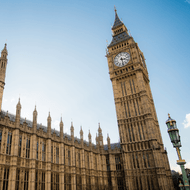National Living Wage Set to Increase to £11.44 per Hour
Posted by Emma on 22nd Nov 2023 Reading Time:
In a significant development, the minimum wage, officially called the National Living Wage, is scheduled to rise by over a pound to £11.44 per hour starting in April of the coming year. This wage stands at £10.42 per hour for workers aged 23 and above. However, Chancellor Jeremy Hunt has extended this rate to include 21 and 22-year-olds for the first time.
 Posted by: HM Treasury and The Rt Hon Jeremy Hunt MPPhotographer: Andrew Parsons, OGL 3, via Wikimedia Commons
Posted by: HM Treasury and The Rt Hon Jeremy Hunt MPPhotographer: Andrew Parsons, OGL 3, via Wikimedia Commons
This increase will result in a substantial boost in income for workers. For instance, a full-time employee aged 23 on the minimum wage will experience a yearly raise equivalent to £1,800, while a 21-year-old worker will witness an effective £2,300 annual increase.
This policy alteration precedes Chancellor Hunt's forthcoming Autumn Statement, during which he will outline the government's latest tax and spending decisions. During the Conservative Party conference in October, Mr Hunt hinted at the minimum wage surpassing £11 in April. The confirmed raises represent a notable 9.8% increase for those aged 23 and above compared to last year and a remarkable 12.4% surge for workers aged 22 and 21.
The minimum wage for individuals aged 21 to 22 is currently £10.18 per hour. Furthermore, the National Minimum Wage for 18 to 20-year-olds is set to increase to £8.60 an hour from the current £7.49. Altogether, these above-inflation wage hikes will benefit approximately 2.7 million low-paid workers. Apprentices are not left behind, as they are slated to receive an hourly pay raise of over 20%, increasing from £5.28 to £6.40 an hour.
Chancellor Hunt has fully endorsed the proposals put forth by the Low Pay Commission, an advisory body to the government on minimum wage matters. This move aligns with the Conservative Party's goal of "ending low pay" by elevating the living wage to two-thirds of the average earnings measure.
"The National Living Wage has played a significant role in reducing the number of people earning low wages since 2010, ensuring that work is always financially rewarding," stated Mr. Hunt.
Bryan Sanderson, Chair of the Low Pay Commission, acknowledged that the recommendation to raise the minimum wage to £11.44 was a response to the considerable political and economic uncertainty prevailing.
This adjustment in minimum wage comes when the rising cost of living has placed immense pressure on household budgets, disproportionately affecting those with lower incomes who face increased energy and food expenses. However, it's worth noting that these pay raises have raised concerns among some industry sectors. A similar increase last year led to apprehensions from retail and hospitality businesses regarding higher wage bills.
In response to the announcement, Kate Nicholls, Chief Executive of UK Hospitality, the industry body, expressed her views on social media, emphasising that while the government announces such changes, businesses are responsible for implementing them. She highlighted the importance of taking additional actions to reduce taxes and costs, particularly about business rates.
We encourage readers to share their thoughts on this critical development by commenting below.

